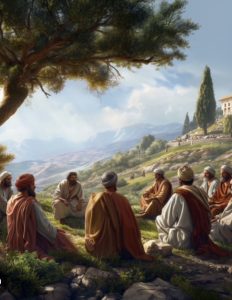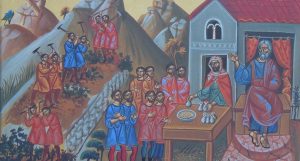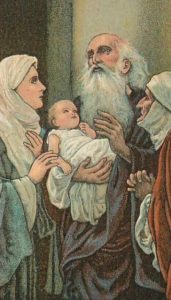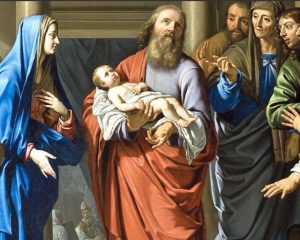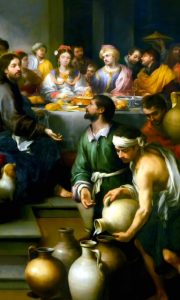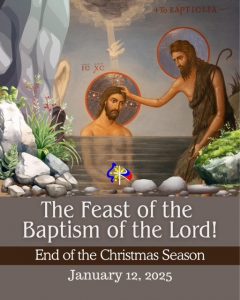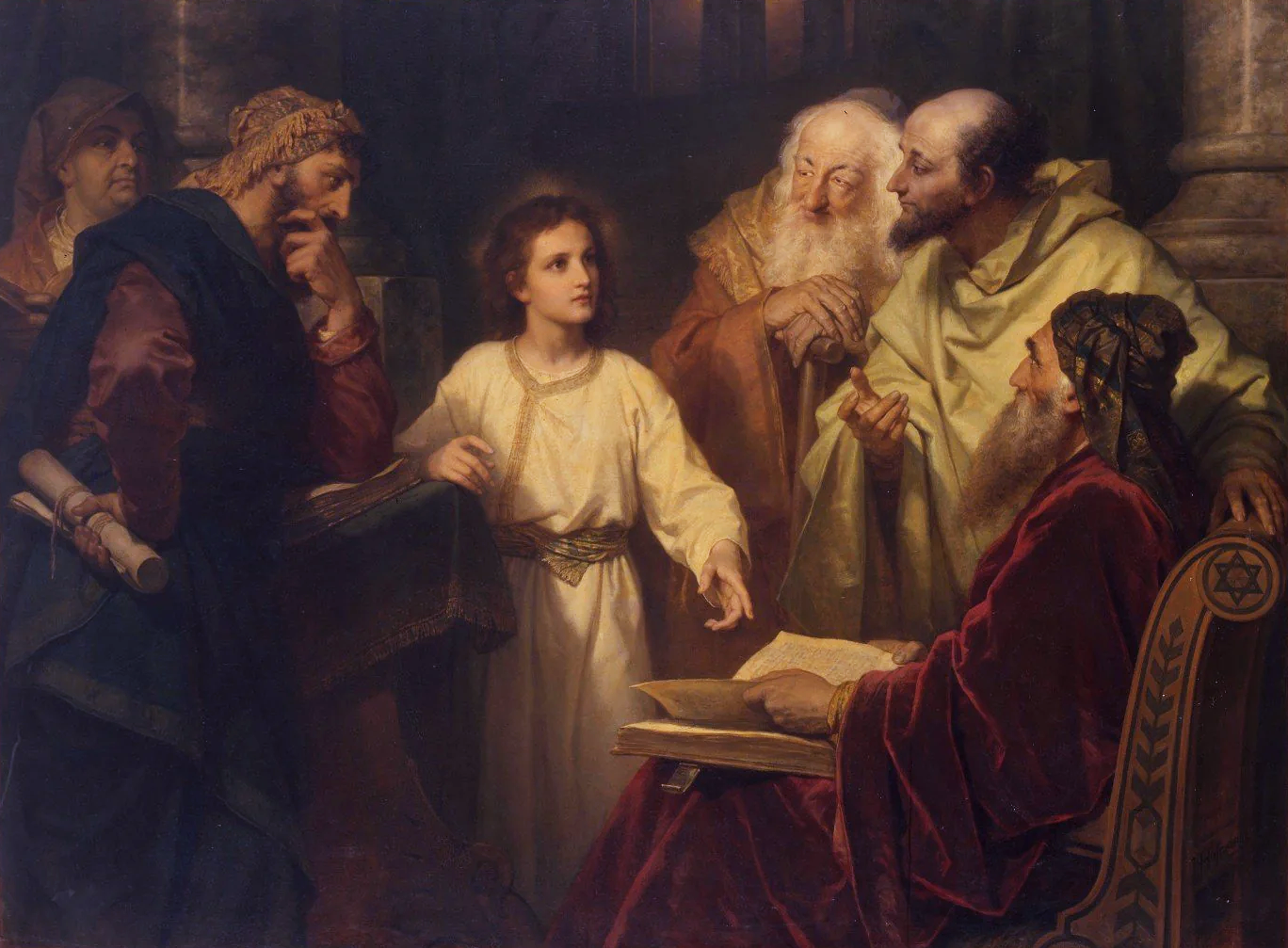Today is the 6th Sunday in Ordinary Time. I was invited to celebrate the TV Sunday Mass which has been broadcasted on the air weekly by KOLO TV Channel 8, Reno, Nevada. It is a different feeling while the camera is focused on the celebrant. When the camera starts rolling, I am a bit under pressure due to the fact that the mass time to finish everything must be within the allotted time. However, the joy of having the opportunity to celebrate the mass for the homebound, the sick and the elderly becomes a real blessing with this Sunday’s gospel on the Beatitudes, meaning Happiness.
The first reading from the Prophet Jeremiah emphasizes trust in God over our concerns of this world. The people of Israel were given a warning by Jeremiah because they have forsaken their duty to worship God and are ignoring their temple worship tradition. Jeremiah denounced it by writing this with an iron pen and a diamond tip to show his deep sorrows.
In the second reading from the first letter of St. Paul to the Corinthians, the apostle’s letter reminds them that Christ’s death, resurrection and salvation rests only in the Lord. There is a clear choice between the ways of the Lord or the wicked.
The gospel today is about the “Beatitudes” which can be found in the gospels of Matthew and Luke. The evangelist Luke writes his own version, which is known as the “Sermon on the Plain”. These words were addressed to Jesus’ hearers and for us to hear this passage for our own good. I presume that those who are listening will find meaning, true richness and spiritual nourishment.
St. Luke’s record of the event narrates that Jesus had spent all night “out into a mountain to pray” (6:12). Then Jesus came down in order for him to address the crowd and His disciples. This detail matters profoundly that before He speaks, He prayed to commune with His Father in prayer. In this action, Jesus physically and spiritually enacts His urgent mission: He goes down to the people and stands at the same level as they stand. He is teaching them, but He is with them, too and not above them. Whenever we hear Jesus’ words, He is with us and amongst us.
The word beatitude literally means happiness. The way of happiness that Jesus outlines calls everyone for a transformation from within, a conversion of life and to revisit our interior being. Believers and followers of Christ are called to do likewise, though hard and challenging. Let us reflect on the following:
First, the blessings that Jesus has mentioned in the Beatitudes are not material blessings, like winning a lottery or becoming richer. Rather it is about being spiritually rich and successful. In fact, it is a total opposition to all the world offers us. It almost turns all our notions of blessedness upside down.
Second, finding ourselves to be “spiritually poor,” we have nothing but God in our lives. Being poor, we discover God because we become dependent on Him. We become completely dependent on God, the very source of all things, because everything came into being by His power.
St. Augustine promoted poverty of spirit and continence of the heart, living in Hippo with his friends and brothers in the community while doing their pastoral duties. Our Father, St. Augustine, says, ‘the love of neighbor is simply another expression of the love of God,” in the realm of spiritual poverty. Being poor, we can share much. In our poverty, we open our hands to help and our hearts to pray to our God who provides.
Third, when we find ourselves mourning, we shall be comforted because in our helplessness, grief and starving for justice, we have nowhere to find true comfort except from our Savior who saves and satisfies us.
Fourth, we find God’s mercy for our sins and our pains, and wounds heal. We receive cleansing of our hearts; therefore, we too experience and see God within us thru a purified heart from all the pains and woundedness. Thus, we can easily offer forgiveness and mercy to others as well. We become peacemakers, ready to dispense that special blessedness we have received. I believe that once God has given us His bountiful grace, His mercy overflows in our hearts. Now, we become true children of God and see Him face to face.
I believe that the fulfillment of the promise of salvation has been attached to all kinds of difficulties and challenges in this present world. This is both a message and a warning to us that we will all succumb to suffering and difficulties here on earth; however, there is an end to suffering when we completely trust and be faithful to Jesus, who sacrificed His own life so that we may live for all eternity. God has been more faithful than us. We must not run dry for our continuous desire to be with Him.
May God bless us.
Fr. Arlon, osa
—————–
El Dictamen del Corazón
Sexto Domingo del Tiempo Ordinario, Año C.
- Jeremías 17:5-8
- Salmo 1:1-2, 3, 4 y 6
- 1 Corintios 15:12, 16-20
- Lucas 6:17, 20-26
Hoy es el Sexto Domingo del Tiempo Ordinario. Fui invitado a celebrar la Misa dominical transmitida por KOLO TV Canal 9 de Reno, Nevada. Es un sentimiento diferente cuando la cámara está enfocada en el celebrante. Al comenzar la grabación, sentí un poco de presión porque el tiempo de la misa debe ajustarse al tiempo asignado para concluir. Sin embargo, la alegría de tener la oportunidad de celebrar la misa para los que están en casa, los enfermos y los ancianos, se convierte en una verdadera bendición en el evangelio de este domingo sobre las Bienaventuranzas, es decir, la Felicidad.
La primera lectura del Profeta Jeremías enfatiza la confianza en Dios por encima de nuestras preocupaciones de este mundo. El pueblo de Israel recibió una advertencia de parte de Jeremías porque habían abandonado su deber de adorar a Dios e ignoraban la tradición del culto en el templo. Jeremías lo denunció escribiendo esto con un bolígrafo de hierro y una punta de diamante para mostrar su profundo dolor.
La segunda lectura de la primera carta de San Pablo a los Corintios recuerda a los destinatarios sobre la muerte y resurrección de Cristo, en la que la salvación descansa solo en el Señor. Hay una elección clara entre los caminos del Señor o los del malvado.
El evangelio de hoy trata sobre las “Bienaventuranzas”, que se encuentran en los evangelios de Mateo y Lucas. El evangelista Lucas escribe su propia versión, que se conoce como el “Sermón en la Llanura”. Estas palabras fueron dirigidas a los oyentes de Jesús y también para nosotros, que escuchamos este pasaje para nuestro propio bien. Presumo que aquellos que escuchen encontrarán significado, verdadera riqueza y alimento espiritual.
San Lucas relata que Jesús pasó toda la noche “en la montaña para orar” (6:12). Luego, Jesús descendió para dirigirse a la multitud y a sus discípulos. Este detalle es profundamente importante porque antes de hablar, Él oró para comunicarse con Su Padre. En esta acción, Jesús actúa física y espiritualmente en su misión urgente: baja hacia la gente y se pone al mismo nivel que ellos. Él les enseña, pero también está con ellos, no por encima de ellos. Siempre que escuchamos las palabras de Jesús, Él está con nosotros y entre nosotros.
La palabra “bienaventuranza” significa literalmente “felicidad”. El camino de la felicidad que Jesús describe llama a todos a una transformación interior, una conversión de vida y a revisar nuestro interior. Los creyentes y seguidores de Cristo están llamados a hacer lo mismo, aunque sea difícil y desafiante. Reflexionemos sobre lo siguiente:
Primero, las bendiciones que Jesús menciona en las Bienaventuranzas no son bendiciones materiales, como ganar la lotería o volverse más rico. Más bien, es de ser espiritualmente ricos y exitosos. De hecho, es una total oposición a todo lo que el mundo nos ofrece. Casi invierte todas nuestras nociones de bendición.
Segundo, al encontrarnos “espiritualmente pobres”, no tenemos más que a Dios en nuestras vidas. Al ser pobres, descubrimos a Dios porque nos volvemos dependientes de Él. Nos volvemos completamente dependientes de Dios, la fuente de todas las cosas, porque todo vino a la existencia por Su poder.
San Agustín promovió la pobreza del espíritu y la continencia del corazón, viviendo en Hipona con sus amigos y hermanos en la comunidad mientras cumplían con sus deberes pastorales. Nuestro Padre, San Agustín, dice: “El amor al prójimo es simplemente otra expresión del amor a Dios”, en el ámbito de la pobreza espiritual. Siendo pobres, podemos compartir mucho. En nuestra pobreza, abrimos nuestras manos para ayudar y nuestros corazones para orar a nuestro Dios que provee.
Tercero, cuando nos encontremos llorando, seremos consolados porque, en nuestra impotencia, dolor y hambre de justicia, no tenemos dónde encontrar consuelo verdadero más que en nuestro Salvador, quien nos salva y nos satisface.
Cuarto, cuando encontramos la misericordia de Dios por nuestros pecados, nuestros dolores y heridas sanan. Recibimos la limpieza de nuestro corazón; por lo tanto, también experimentamos y vemos a Dios dentro de nosotros a través de un corazón purificado de todo dolor y herida. Así, podemos ofrecer fácilmente perdón y misericordia a los demás también. Nos convertimos en pacificadores, listos para repartir esa especial bendición que hemos recibido. Creo que una vez que Dios nos ha dado Su abundante gracia, Su misericordia se desborda en nuestro corazón. Ahora, nos convertimos en verdaderos hijos de Dios y lo vemos cara a cara.
Creo que el cumplimiento de la promesa de la salvación ha estado unido a todo tipo de dificultades y desafíos en este mundo presente. Este es tanto un mensaje como una advertencia para nosotros de que todos sucumbiremos al sufrimiento y las dificultades aquí en la tierra; sin embargo, hay un fin para el sufrimiento cuando confiamos completamente y somos fieles a Jesús, quien sacrificó Su propia vida para que vivamos por toda la eternidad. Dios ha sido más fiel que nosotros. No debemos quedarnos secos en nuestro continuo deseo de estar con Él.
Que Dios los bendiga.
P. Arlon, osa
